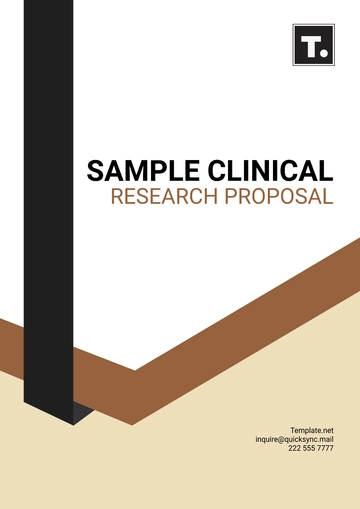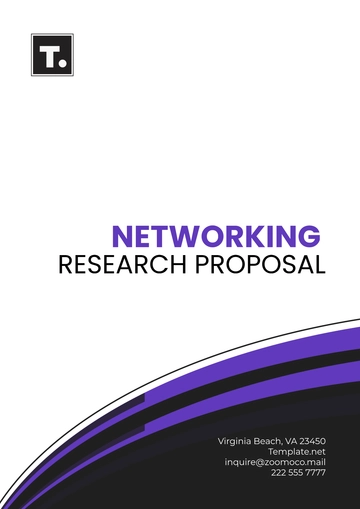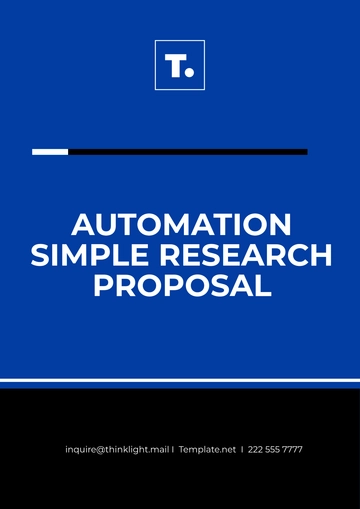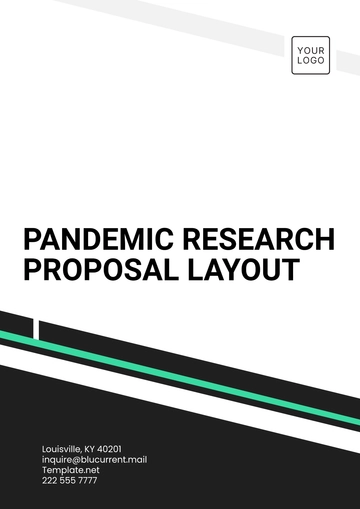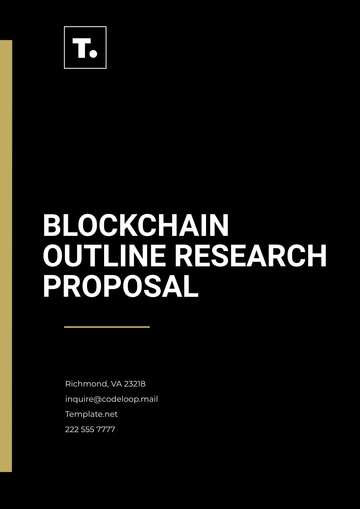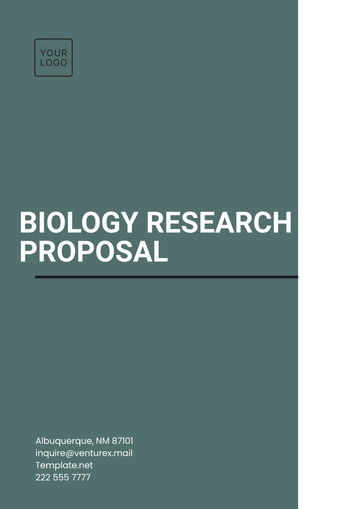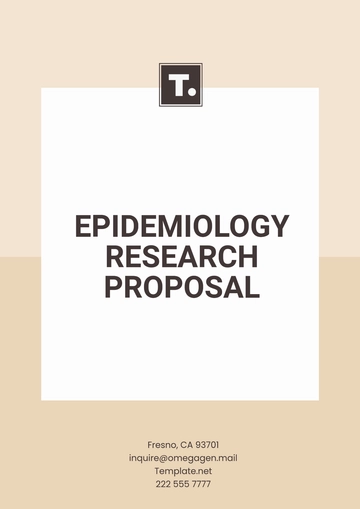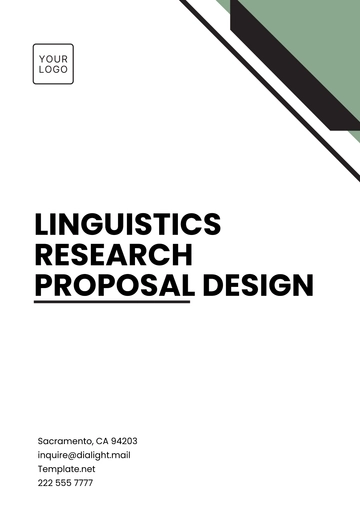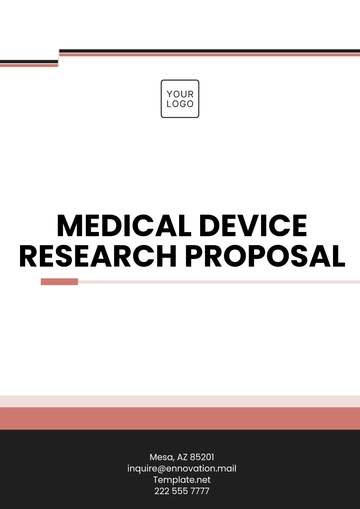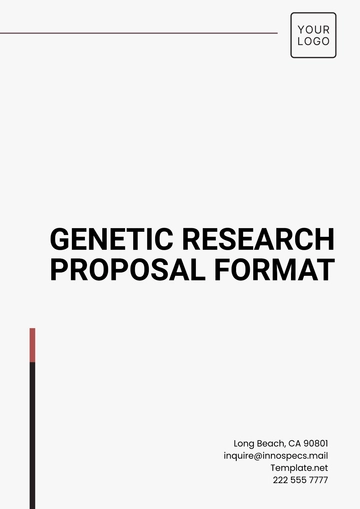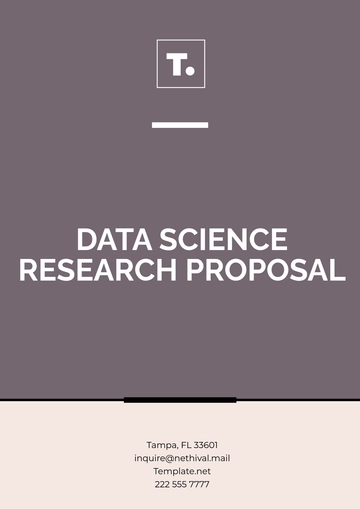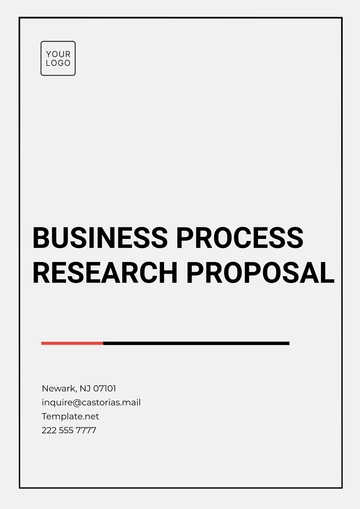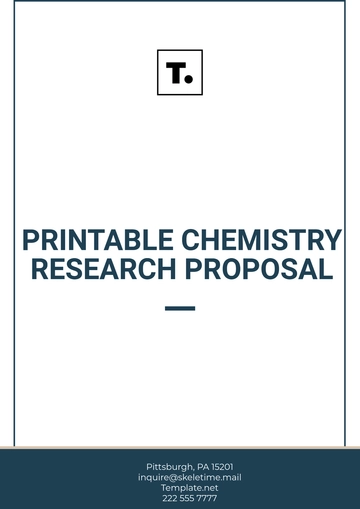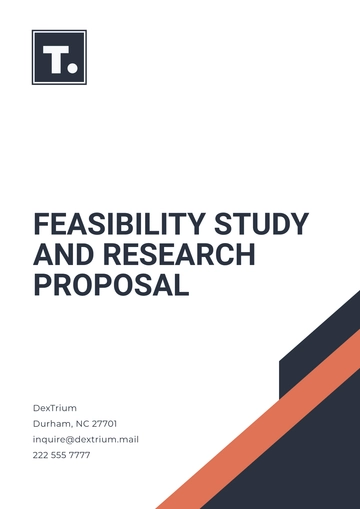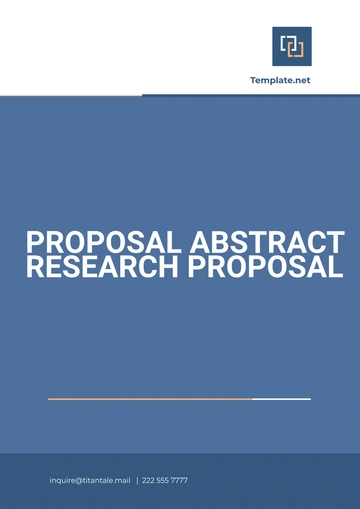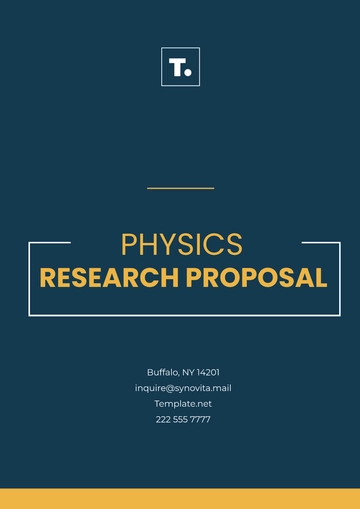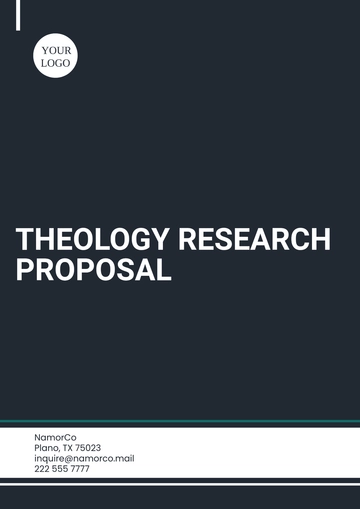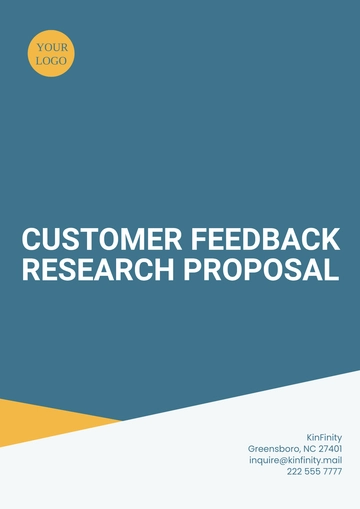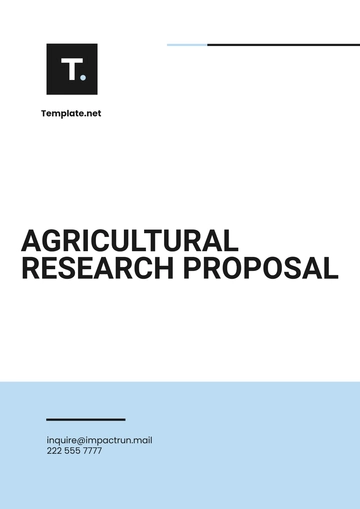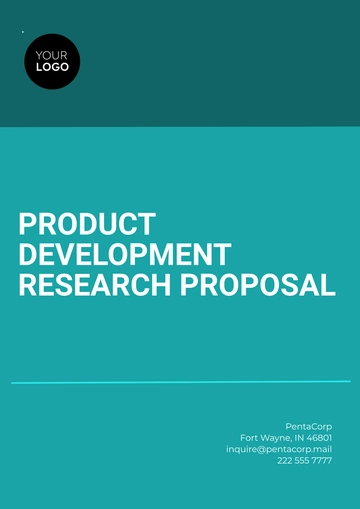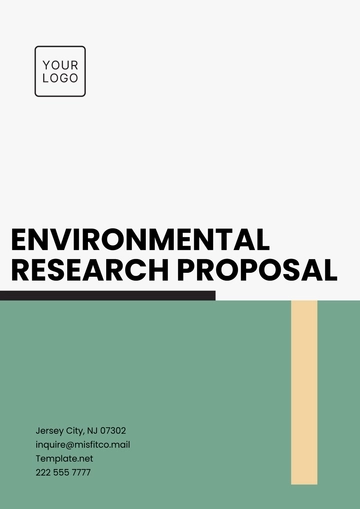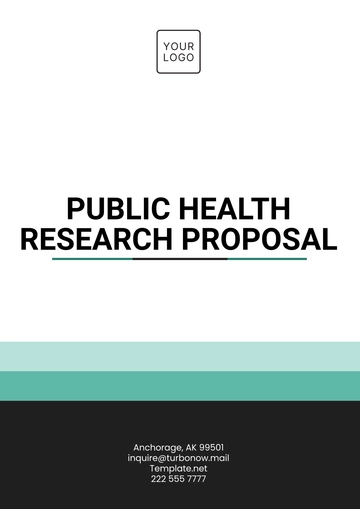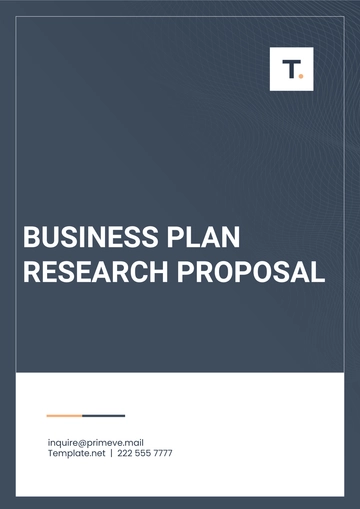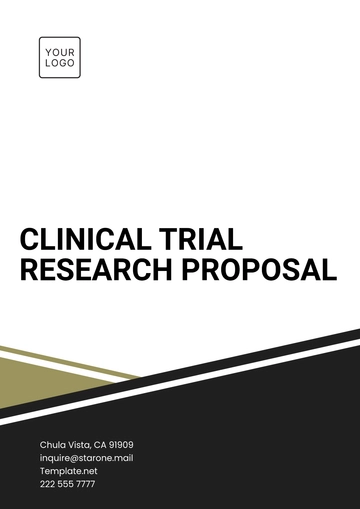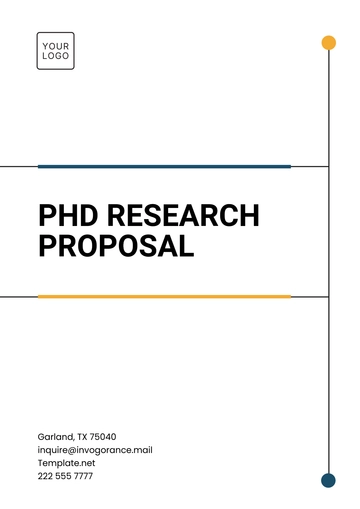Free Feasibility Study Research Proposal
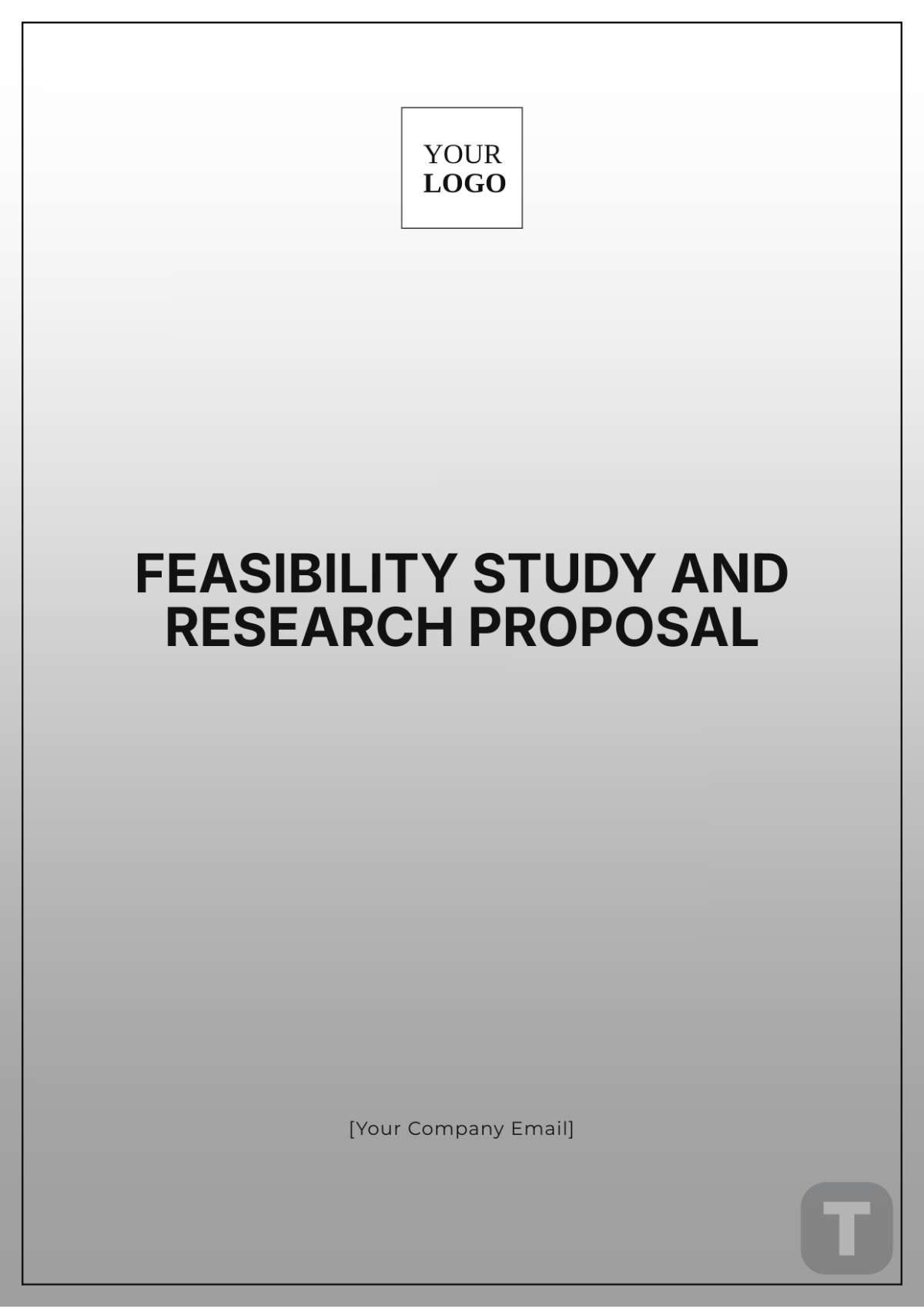
Prepared by: [Your Name]
I. Introduction
A feasibility study is an in-depth analysis of the viability of an idea or project, with an emphasis on identifying potential problems and the practicality of the project. This research proposal aims to outline the framework for conducting a feasibility study to determine the potential success of a proposed project.
II. Objectives
To identify the key factors affecting the feasibility of the project.
To assess the potential risks and benefits associated with the project.
To evaluate the financial viability and required resources.
To provide recommendations based on the research findings.
III. Methodology
This feasibility study will adopt a mixed-methods approach, combining qualitative and quantitative research methods. The study will be conducted in the following phases:
A. Preliminary Analysis
A preliminary analysis will be conducted to gather initial information and gain a clear understanding of the project's scope. This will include:
Defining the project goals and objectives.
Identifying the target market and stakeholders.
Reviewing similar projects for benchmarking purposes.
B. Market Analysis
The market analysis will focus on understanding market demand and the competitive landscape. This will involve:
Conducting surveys and interviews with potential customers and stakeholders.
Analyzing market trends and drivers.
Assessing the competitive environment.
C. Technical Feasibility
The technical feasibility will evaluate the technical requirements and the ability to meet them. This phase includes:
Assessing the technical resources and infrastructure needed.
Evaluating the technical skills and expertise required.
Identifying potential technological challenges and solutions.
D. Financial Analysis
The financial analysis will determine the economic viability of the project by assessing:
The initial investment and ongoing operational costs.
Potential revenue streams and profitability.
Cash flow projections and break-even analysis.
IV. Data Collection Methods
Data for this feasibility study will be collected from multiple sources, including:
Primary data collection: Surveys, interviews, and focus groups with stakeholders.
Secondary data collection: Review of existing literature, industry reports, and case studies.
V. Analysis and Reporting
The collected data will be analyzed using both quantitative and qualitative methods. The analysis will focus on identifying key trends, risks, and opportunities. The findings will be compiled into a comprehensive report, which will include:
Executive summary
Introduction and background
Methodology
Findings and analysis
Conclusions and recommendations
VI. Resources and Budget
Resource | Estimated Cost |
|---|---|
Primary Data Collection | $10,000 |
Secondary Data Collection | $5,000 |
Technical Assessment | $7,000 |
Financial Analysis | $8,000 |
Report Compilation | $5,000 |
Total | $35,000 |
VII. Timeline
Phase | Duration |
|---|---|
Preliminary Analysis | 1 month |
Market Analysis | 2 months |
Technical Feasibility | 2 months |
Financial Analysis | 1 month |
Analysis and Reporting | 1 month |
Total | 7 months |
VIII. Conclusion
This feasibility study research proposal outlines a comprehensive plan to evaluate the viability of the proposed project. The study will provide insight into market demand, technical requirements, financial viability, and potential risks. The findings and recommendations will aid in making informed decisions about proceeding with the project.
IX. References
Smith, J. (2058). Feasibility Studies: A Practical Guide. New York, NY: Wiley.
Jones, A. (2059). Market Analysis Techniques. London, UK: Routledge.
Brown, S., & Green, R. (2050). Financial Feasibility of New Projects. Washington, DC: Brookings Institution Press.
- 100% Customizable, free editor
- Access 1 Million+ Templates, photo’s & graphics
- Download or share as a template
- Click and replace photos, graphics, text, backgrounds
- Resize, crop, AI write & more
- Access advanced editor
Feasibility Study Research Proposal Template, expertly crafted to meet your needs. Offered by Template.net, this customizable template ensures you can tailor each section to your specific requirements. It's downloadable, printable, and fully editable in our AI Editor Tool, allowing for seamless adjustments and enhancements. Streamline your research proposal process with a professional format that supports efficient documentation and thorough analysis.
You may also like
- Business Proposal
- Research Proposal
- Proposal Request
- Project Proposal
- Grant Proposal
- Photography Proposal
- Job Proposal
- Budget Proposal
- Marketing Proposal
- Branding Proposal
- Advertising Proposal
- Sales Proposal
- Startup Proposal
- Event Proposal
- Creative Proposal
- Restaurant Proposal
- Blank Proposal
- One Page Proposal
- Proposal Report
- IT Proposal
- Non Profit Proposal
- Training Proposal
- Construction Proposal
- School Proposal
- Cleaning Proposal
- Contract Proposal
- HR Proposal
- Travel Agency Proposal
- Small Business Proposal
- Investment Proposal
- Bid Proposal
- Retail Business Proposal
- Sponsorship Proposal
- Academic Proposal
- Partnership Proposal
- Work Proposal
- Agency Proposal
- University Proposal
- Accounting Proposal
- Real Estate Proposal
- Hotel Proposal
- Product Proposal
- Advertising Agency Proposal
- Development Proposal
- Loan Proposal
- Website Proposal
- Nursing Home Proposal
- Financial Proposal
- Salon Proposal
- Freelancer Proposal
- Funding Proposal
- Work from Home Proposal
- Company Proposal
- Consulting Proposal
- Educational Proposal
- Construction Bid Proposal
- Interior Design Proposal
- New Product Proposal
- Sports Proposal
- Corporate Proposal
- Food Proposal
- Property Proposal
- Maintenance Proposal
- Purchase Proposal
- Rental Proposal
- Recruitment Proposal
- Social Media Proposal
- Travel Proposal
- Trip Proposal
- Software Proposal
- Conference Proposal
- Graphic Design Proposal
- Law Firm Proposal
- Medical Proposal
- Music Proposal
- Pricing Proposal
- SEO Proposal
- Strategy Proposal
- Technical Proposal
- Coaching Proposal
- Ecommerce Proposal
- Fundraising Proposal
- Landscaping Proposal
- Charity Proposal
- Contractor Proposal
- Exhibition Proposal
- Art Proposal
- Mobile Proposal
- Equipment Proposal
- Student Proposal
- Engineering Proposal
- Business Proposal
